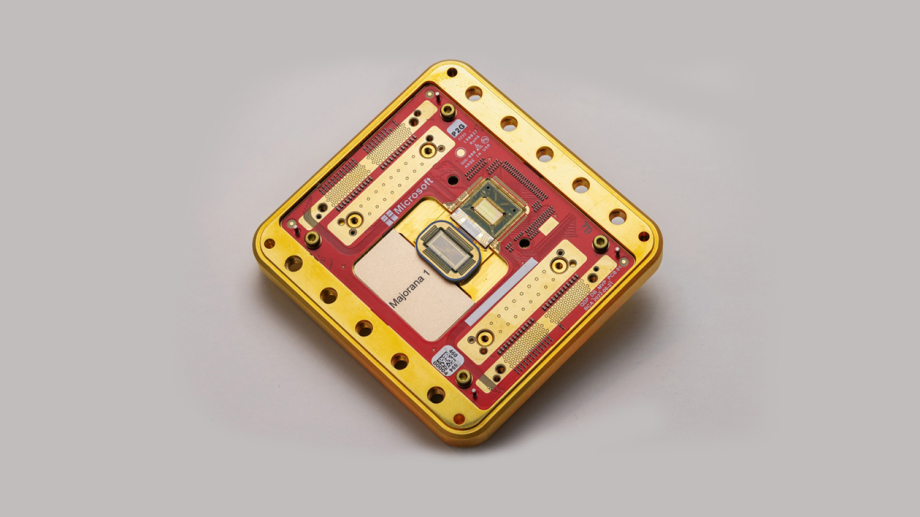- Published on
Quantum Computing: From Theory to Technological Revolution
- Authors

- Name
- caphe.dev
- @caphe_dev

Quantum Computers: From Theory to Technological Revolution
Quantum computers – a term that may seem distant but is gradually becoming a reality, promising to completely change the way we solve the most complex problems. Unlike classical computers, quantum computers not only process information using 0 and 1 but also harness the power of quantum mechanics to perform calculations millions of times faster. This article will help you understand this groundbreaking technology through easily relatable examples, its superior capabilities, and the latest advancements from leading tech companies.
Easy-to-Understand Example: Solving a Maze at "Lightning Speed"
Imagine you are standing in front of a gigantic maze with thousands of paths. A classical computer would try each path one by one until it finds the exit, just like how you would explore each dead end. Meanwhile, a quantum computer operates like a "wizard" capable of going down all paths simultaneously thanks to the effect of quantum superposition. Instead of taking hours, it only takes a few seconds to determine the correct exit[11][12].
This example illustrates the power of parallel computation in quantum computers. If a traditional computer is like a runner, then a quantum computer is a jet – both reach the destination, but the speed is entirely different.
The diagram above illustrates the basic structure of a quantum computer, including three main components: Qubit (the basic unit of information processing), special quantum algorithms, and key application areas. Each component plays a crucial role in creating the superior computational power of quantum computers.
Capabilities of Quantum Computers: Beyond Classical Limits
1. Qubit – The "Superpower" of Quantum Computers
Classical computers use bits (0 or 1) to encode information. In contrast, quantum computers use qubits – which can exist in both 0 and 1 simultaneously due to superposition effects. For example, 2 qubits can represent 4 states at once (00, 01, 10, 11), and this number increases exponentially with additional qubits[1][6][13].
As a result, quantum computers can solve complex problems that traditional machines cannot handle:
- Molecular Simulation: Helps research new drugs 120 times faster[3].
- Secure Encryption: Breaks RSA encryption systems in minutes instead of millions of years[8].
- Logistics Optimization: Finds the most efficient shipping routes for thousands of delivery points[12].
2. Quantum Algorithms: The "Special Weapons"
Quantum computers are not only faster but also utilize specialized algorithms such as:
- Grover's Algorithm: Searches through an unsorted list at a speed 1 million times faster than classical machines[5][8].
- Shor's Algorithm: Factorizes large integers into prime factors, threatening current encryption systems[8].
Progress of Companies: The Fierce Race
1. IBM – A Pioneer in Qubit Expansion
IBM aims to build a quantum supercomputer integrated with 1,000 qubits by 2025[3]. In 2021, they broke the 100-qubit barrier and improved molecular simulation speed by 120 times thanks to the Qiskit Runtime platform[3][6]. Notably, IBM focuses on quantum software to make it easier for users to access without needing deep hardware knowledge[3].
2. Google – Demonstrating Quantum Supremacy
In 2023, Google announced the Sycamore computer solved a problem in 200 seconds – a task that the world's most powerful supercomputer would take 10,000 years[6]. This achievement confirms quantum supremacy, paving the way for practical applications[6].
3. Microsoft & Quantinuum – Breakthrough in Qubit Error Correction
In April 2024, Microsoft and Quantinuum announced a groundbreaking quantum error correction technique: 30 physical qubits produce 4 "clean" qubits, reducing errors to 0% after 14,000 experiments[7]. This technology is expected to be commercialized in a few months, shortening the development timeline by 2 years[7].

4. China – Fierce Competition
Jiuzhang – the Chinese quantum computer – solves problems in less than 1 second, while traditional supercomputers require 5 years[6]. This demonstrates China's increasing influence in the technology race[6].
Conclusion: The Future Has Begun
Quantum computers are no longer science fiction. With advancements from IBM, Google, Microsoft, and others, we are getting closer to the era of ubiquitous quantum computing. Although challenges like quantum noise and high costs remain, its potential in healthcare, AI, and security is undeniable[7][12][14]. In the next 5–10 years, quantum computers could become indispensable tools, completely changing the way humans solve problems.
"Quantum computing is like inventing electricity – we cannot yet fully envision its applications, but it will undoubtedly change the world." – Quantum researcher at IBM[3].
Sources